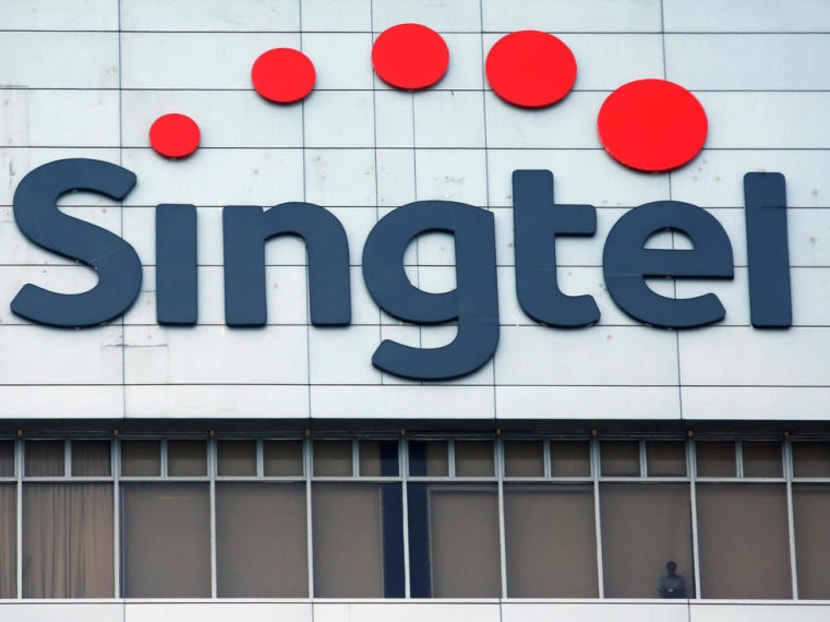Singtel pips StarHub, M1 to be the fastest telco in town; Singapore falls to fifth in speed stakes
SINGAPORE — Singtel has topped its rivals M1 and StarHub with the fastest overall download speeds and the widest high-speed network coverage in town, a study has found.

Singtel’s download speeds averaged at 42.5 megabits per second (Mbps) for both 4G and 3G speeds in May 2019, up from 38.3 Mbps in a previous study in October 2018.
SINGAPORE — Singtel has topped its rivals M1 and StarHub with the fastest overall download speeds and the widest high-speed network coverage in town, a study has found.
But globally it is no longer the fastest, because four countries — South Korea, Norway, Canada and the Netherlands — have overtaken Singapore.
The city-state ranks fifth in the world in download speeds this year, data compiled by international mobile analytics firm Opensignal showed. Last year, Singapore was first.
In terms of fourth-generation (4G) network coverage, Singapore’s telcos ranked 14th out of 87 countries last year, performing worse than several cities such as Bangkok, Seoul, Taipei and Tokyo.
The study had taken two snapshots of how telcos performed around the world and in Singapore. It compiled data from more than 43.6 million devices around the world from January to March, as well as more than 82,000 devices in Singapore from February to May.
Mr Ian Fogg, vice-president of analysis at Opensignal, told TODAY that Singapore needs to invest more in infrastructure and research if it wants to remain among the top countries in the world in telco speeds.
“The mobile phone experience in Singapore is still a good one, but it is slipping relative to some countries,” Mr Fogg, who is in London, said.
“If Singapore is still determined to lead the world in mobile networking, then the operators must invest in infrastructure support, considering the higher data consumption and smartphone use today.”
SINGTEL DETHRONES STARHUB
The Singapore study shows that Singtel has dethroned StarHub in download speeds.
Singtel’s download speeds averaged at 42.5 megabits per second (Mbps) for both 4G and 3G speeds in May, up from 38.3 Mbps in a previous study in October. StarHub’s speeds fell from 42.2 Mbps to 39.5 Mbps in the same period.
M1 came in slowest at 36.1 Mbps in May, edging up slightly from 36.0 Mbps previously. But its customers enjoyed the lowest lag times and fastest upload speeds of the three.
Singtel’s 4G coverage also exceeded the 90 per cent milestone for the first time, noted the study’s principal analyst Kevin Fitchard. This means that a Singtel customer would be able to access 4G speeds more than nine out of 10 times.
Mr Fitchard said: “Traditionally, the only metric in which Singapore hasn’t been a global leader is 4G availability… (Singapore) has not matched the outstanding levels of 4G access that we have seen among its East Asian peers like South Korea, Taiwan and Japan.”
That may soon change, he added, noting that the 4G coverage by StarHub and M1 is nearing the 90 per cent level needed to push Singapore into the “global elite”.
Access to 4G has a direct impact on network speeds experienced by users, with 4G speeds averaging between five and eight times the speed of the previous generation, the study said.
Fifth-generation (5G) networking technology, which is slated to be rolled out in Singapore from next year, is expected to be around 100 times faster than 4G.
“The fact that we see any growth in (4G coverage) at all shows that even with highly advanced 4G infrastructures — and a pending shift to 5G technology — Singapore's operators are still invested in improving the mobile broadband experience,” Mr Fitchard said.
Singapore’s download speeds are more than 40 per cent slower than Seoul’s from January to March, the study showed. The results do not take into account South Korea’s rollout of 5G networks in April.
Mr Fogg said that price competition from rivals could be the reason Singapore has lost out to these countries. In recent years, Singapore has seen the arrival of a new telco, TPG, and several low-cost mobile virtual network operators such as Circles.Life, as well as a rising trend of SIM-only plans that could push prices down.
“There is a definite risk that revenues will go down, and with it, research and infrastructure spending,” he said.
Mr Fogg believes that with 5G networks about to hit Singapore, telcos must work harder to justify the cost of the investment with a significant boost to the experience of smartphone users.
“If the real-world experience of 5G is not significantly faster than current mobile services, operators will find it hard to charge more for 5G services, justify further network investments or explain the benefits of 5G to acquire new customers,” he said.











